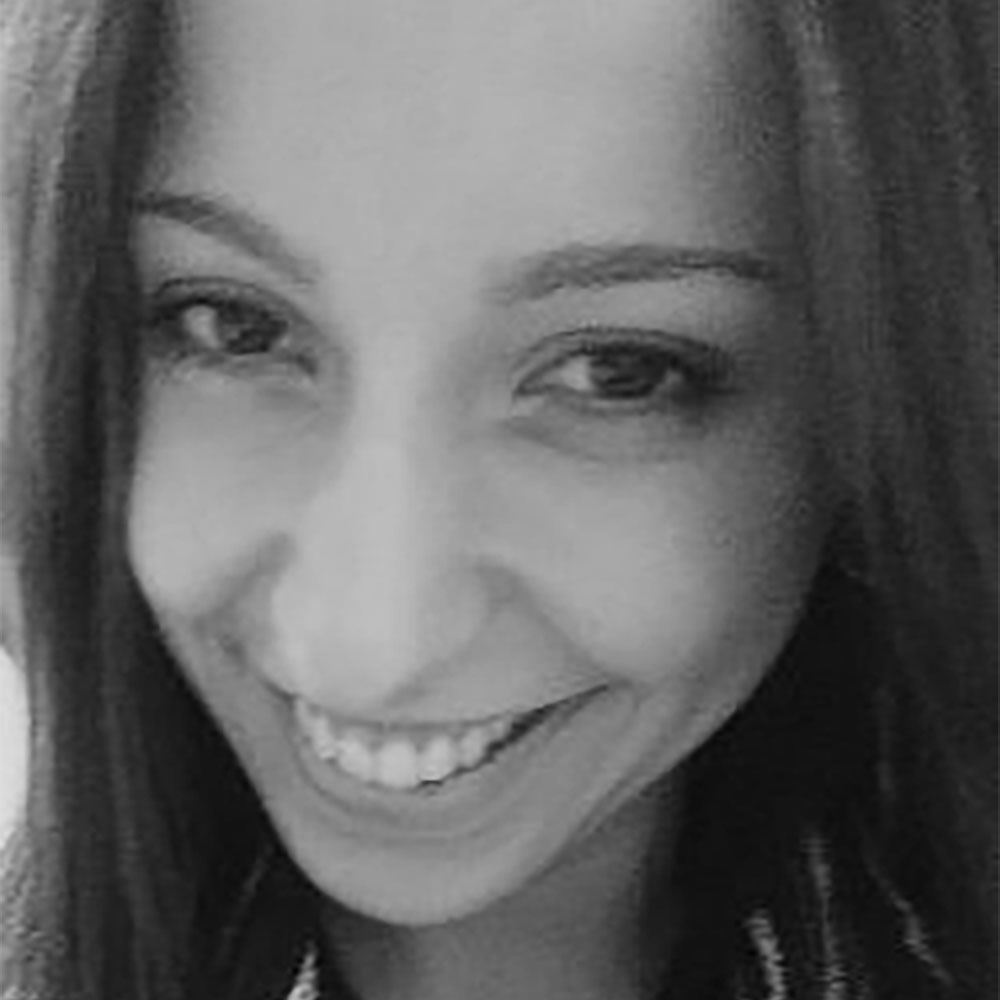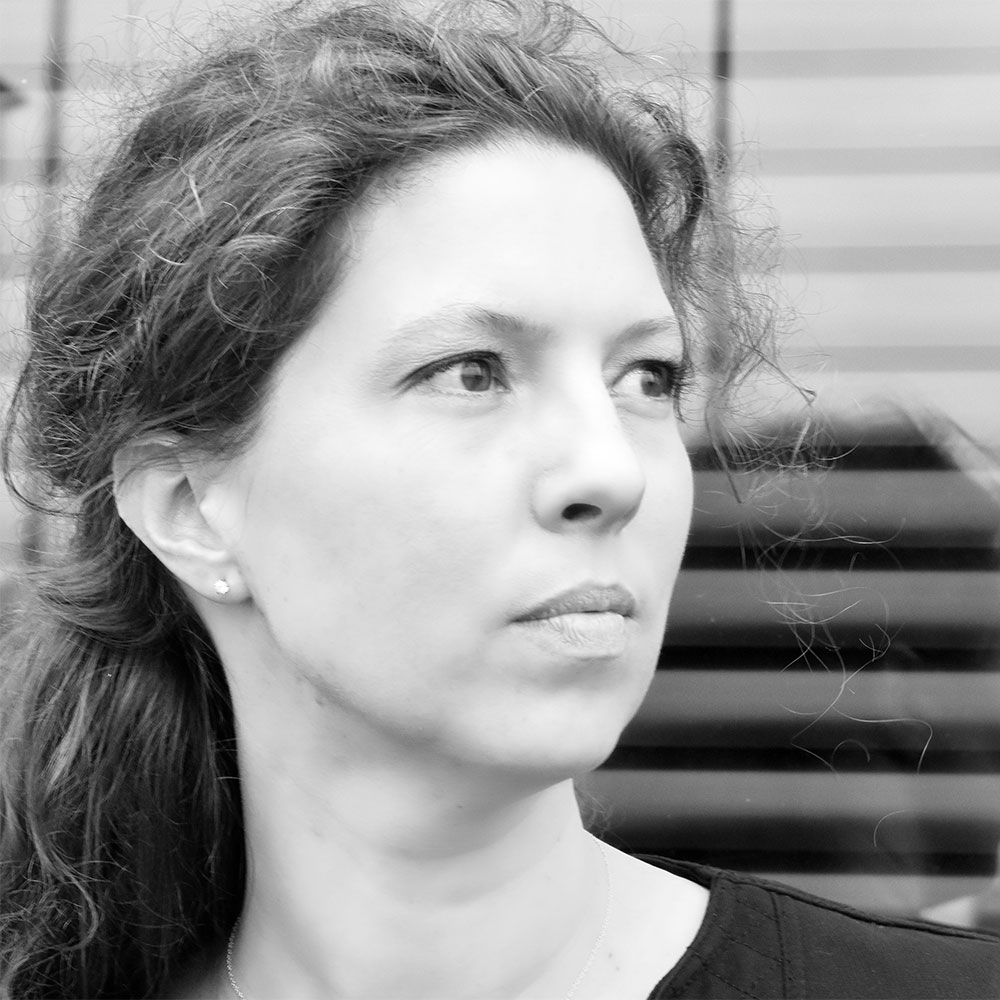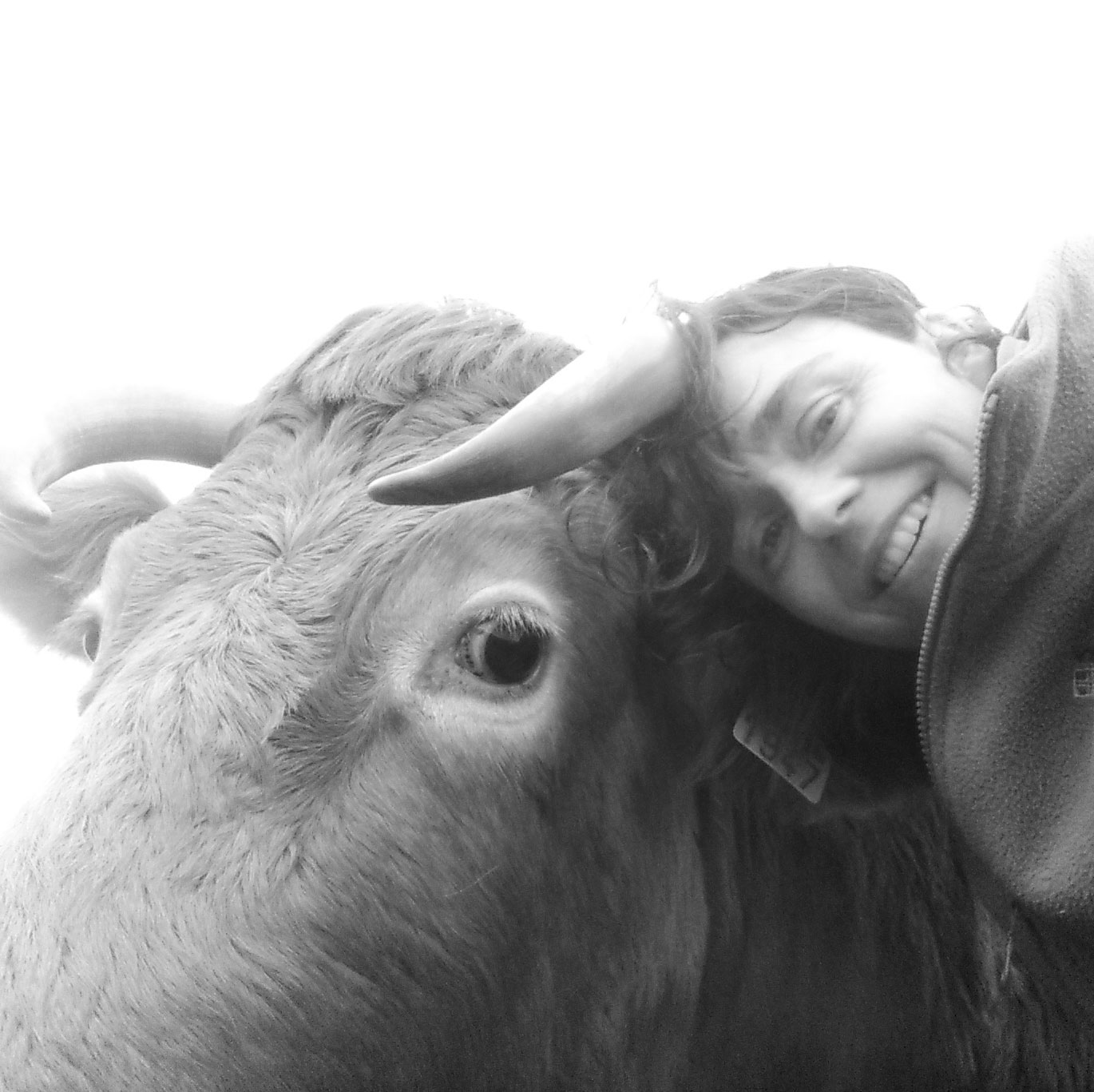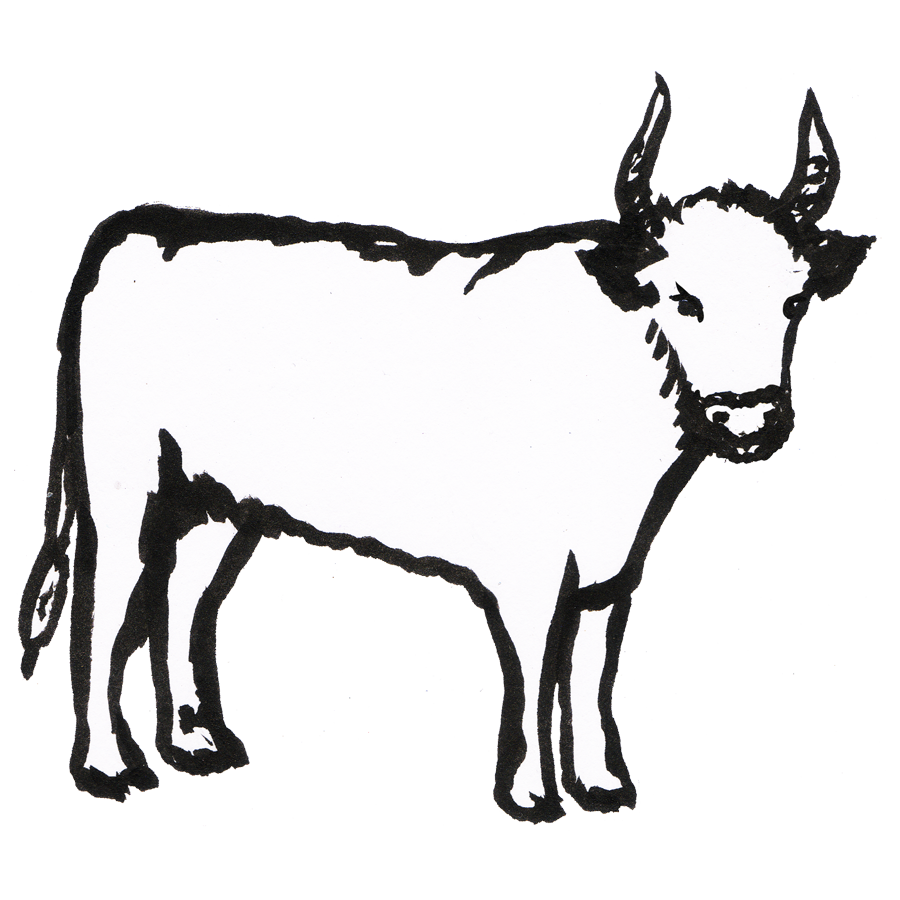
Samia Mahé

Virginie Blanville

Katell Lorre
Activities here explore a Natura 2000 site, initiated and lead by Katell Lorre: la Petite Ferme d'Emeraud. An agri-cultural farm project aimed at self-sufficiency while practicing agro-ecology, working "in respect of life and the galette!".
Katell is in charge of managing a plot of land on the Armorican coastline which, thanks to her efforts, has been able to maintain the Natura 2000 label in accordance with the restoration of the biodiversity achieved. The Natura 2000 label had been granted some time ago as part of a project, titled 'Pastures' and launched by one of her collaborators.
The restoration approach is particularly worthy of interest and admiration: it is with the non-human animals living on this land that Katell has been able to achieve the ecological restoration of the land’s ecosystem and biodiversity The relationship with the non-human animals is not based on exploitation nor coercion: the farm is a multi-species community where the role of the animals is simply to inhabit the land according to their natural needs and habits (grazing).
Samia Mahé
Samia Mahé is an ethics lecturer in a Master's program in design. As a project facilitator, her role also involves contributing to the organization of events and the development of beneficial connections.
Drawing from philosophical approaches to the naturalism of the mind and value theories, Samia is particularly interested in the role of reasons and feelings within a naturalistic approach to ethics, especially within a neo-Aristotelian framework. This is why the work of Mary Midgley is of particular interest to her research. Indeed, Mary Midgley’s philosophy emphasizes the fundamental nature of relationships in the origins of ethics, within a naturalistic ontology. Furthermore, Midgley stresses the natural and rational obligations humans have toward non-human animals and other humans, based on a non-intellectualist view of the capacities of the mind and body.
Samia places particular importance on harmonious relationships, with applied or foundational approaches in other philosophical fields: biomimicry, corporate ethics, and also cognitive and naturalistic theories of values. In psychology, Samia has specifically studied evaluative theories of emotions. Continuing her research, she became interested in psychological explanations for restorative experiences, especially Nature experiences.
This allows her to question the value and specific function of interspecies relational experiences. With this workshop, the goal is to specifically explore the ontology of these non-verbal experiences, as they are part of authentic relationships with non-exploited animals, forming a community of life.
Virginie Blanville
Virginie Blanville is the Educational Manager of the Master’s program in Design and Living Worlds at the Higher Design Institute of Saint-Malo (France).
Virginie is trained and works as a designer. She then independently trained in transition design and various approaches to social and environmental issues applied to design, in order to have a more responsible practice, and primarily one that is essentially more aligned with life and living beings.
With this knowledge and expertise, she is in charge of the programming and pedagogical coherence of the Master’s program in Design and Living Worlds at the Institut D., which is a unique place for training, innovation, and collaboration.
Virginie is particularly interested in spatial design and experience design. She has notably led several exhibitions delivered to the community to make visible ecological processes that are not directly observable.
Currently, in her research work, she is exploring the transformative power of life and nature. She is also reflecting on language, particularly on how to express the agency of non-human animals within language.
lehubdudesign.com/designers/eirl-virginie-blanville/profil
insitut.design/
Katell Lorre
Katell Lorre is a farmer of an agri-cultural and ecological farm and a writer. Regarding the immersive workshop, she is the guarantor of the respect for life of non-human animals in practice, as she possesses specific knowledge of non-human animals, the Landes flora, and the coastal environment of Armorica due to her professional activities.
Katell has accumulated ethological knowledge and skills, which enables her to ensure epistemic mediation during the workshop between human participants and non-human animals, to guarantee favorable conditions for the formation of relationships.
This event is not open to the general public but for master’s students of a Design Institute and integrated into their education (Virginie Blainville being the Master's Program Director). The master’s degree focuses on how to place life and living things at the centre of design projects (paying particular attention to environmental and social transition issues and knowledge we learn from nature).
The immersive workshop will be connected to the ethics course, which will dedicate a significant portion to discussing the natural foundations of ethics, particularly through neo-Aristotelian approaches and contemporary theories of values, while also integrating innovative approaches in the field of environmental ethics (biomimetics) and research in psychology on the human-nature relationship (psychological underpinnings of the experience of nature).
The workshop will be conducted by Katell Lorre, who succeeded and succeeds in restoring the plot’s biodiversity through the ecological and ethical efforts she has undertaken as the "human of her farm" enabling the forming of a multispecies community. Having gained particular skills and knowledge relevant to the human-animal-relations, she will be in charge of the epistemic mediation between animals and the visitors.
The workshop will be multi-phased and progressive. The aim is that each participant will experience how it feels to enter a multispecies living community and go through socio-affective and cognitive events engaging with non-human animals from different species. Based on previous prototypical experiments and theoretical works, main outcomes expected are that the experience of entering into a natural and multispecies community and to progressively engage in relationships with non-human animals (seeking mutual understanding, display empathy, setting boundaries …) – counting on some epistemic guidance to reduce possible avoidant attitudes related to fear and unpredictability – will essentially contribute to increasingly appropriate relationship-building with oneself on the one hand, and within the new comers and the non-human animal community, on the other.
From that experience, participants usually spontaneously question why a non-human relational context had the power to enable that kind of restorative experience: the experience of sharing something of peculiar importance for themselves (as it might be, sharing of evaluative attitudes), and of the forming of reciprocal interactions between humans and non-humans (recognition of a specific need and acting in response). These constitutive of relationships, seem to have something essentially supportive, unpredictable, and restorative. That is why, we suggest to explore further the hypothesis that the experience of entering into this multispecies living community could be regenerative in kind, in so far as, at least, it supports the embodied awareness of genuine and naturally appropriate affective dispositions.

